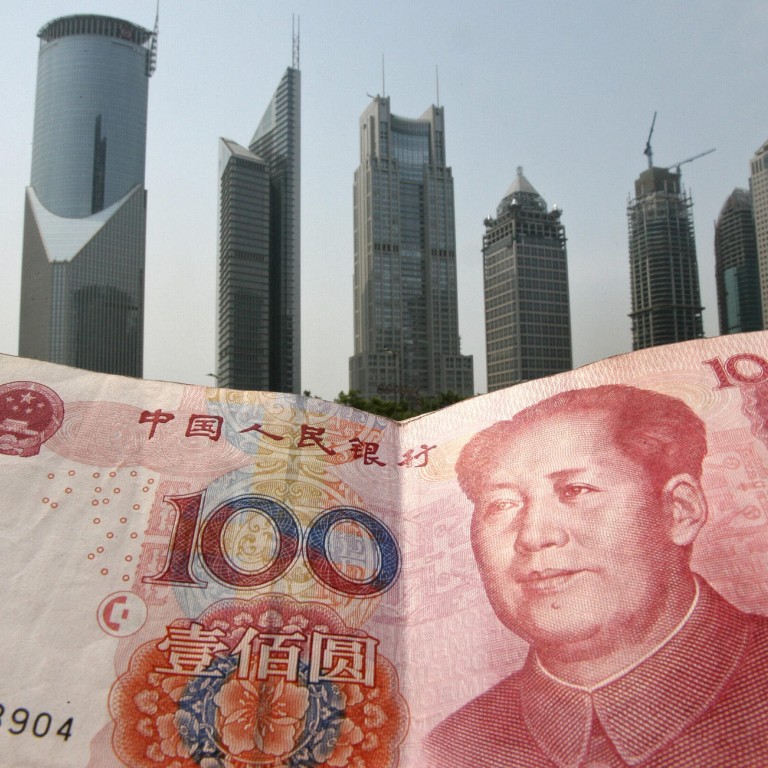
US exchange-traded funds target China onshore bond market
American firms set to launch exchange-traded funds allowing access to onshore bonds that have been largely closed off to foreigners
Investment firms in the United States are readying the first line of exchange-traded funds designed to give American investors access to China's swelling onshore bond market, which has been largely closed off to foreigners.

Some of the funds will invest in a range of yuan assets, including government and corporate bonds, while others will be more specialised, focusing on commercial paper, for example. They will be targeted at both institutional and retail investors.
Gaining access is no small thing for investors. The government-related bond market is worth about US$3 trillion and China's domestic corporate bond market had grown to about US$1.5 trillion at the end of August, after companies raised a combined US$261 billion from bond issuance in the first eight months of the year. In June, credit agency Standard & Poor's said the Chinese corporate bond market overtook the US as the world's biggest.
While onshore Chinese bonds carry the currency, default and regulatory risks that might be expected in a fledgling market, their relatively high yields and low correlation to US Treasuries and other global fixed-income and equities markets will make them appealing to investors, analysts say.
"Yield levels are attractive," said Cecilia Chan, chief investment officer of fixed income for Asia-Pacific at HSBC Global Asset Management.
Ten-year yields on Chinese government bonds are hovering at around 4 per cent, compared with about 2.3 per cent in the US and Britain. If, as some investors expect, the Chinese economy slows further, then the value of high-yielding bonds will likely be bolstered as interest rates fall.
"The ability to access that market, either by retail or institutional investors, is very appealing", said Bruno del Ama, chief executive of New York-based Global X Funds, because the burgeoning market had historically been out of reach for foreigners.
Nevertheless, headwinds exist.
For starters, there is the government-run quota system, which limits foreign access to China's onshore market. Only about US$108 billion has been approved for foreign investment in the mainland's securities markets, including stocks and bonds, under its renminbi qualified foreign institutional investor and qualified foreign institutional investor programmes.
To access those onshore bonds, US fund issuers will have to partner with approved asset managers, mainly based in Hong Kong, and could find their supplies limited.
The operational complexity of these ETFs is in part reflected in the higher fees they are expected to demand. The KraneShares fund, for example, will charge 0.68 per cent in annual management fees, while the Global X fund is expected to cost 0.65 per cent. The PowerShares Chinese-yuan dim sum bond fund, which invests in offshore bonds, has a fee of 0.45 per cent.
While the lack of defaults in the Chinese corporate debt market is comforting for investors, it can add to uncertainty because of the possibility of shocks when authorities do allow more defaults. Bondholder protections have yet to be fully tested.
"It's quite like a belief, like a religion, how much bonds are protected by the government," said Chan, referring to both government and corporate domestic bonds. Investors would like to see more defaults in minor issues "to watch how the default process is handled and look for the market to re-price the probability of default, especially for the low-credit-quality bonds".
China's onshore market was a better reflection of the country's economy than dim sum bonds that were issued offshore, del Ama said. That offshore market can include debt issued by companies such as fast-food chain McDonald's or heavy-equipment maker Caterpillar, so long as it is denominated in yuan.

